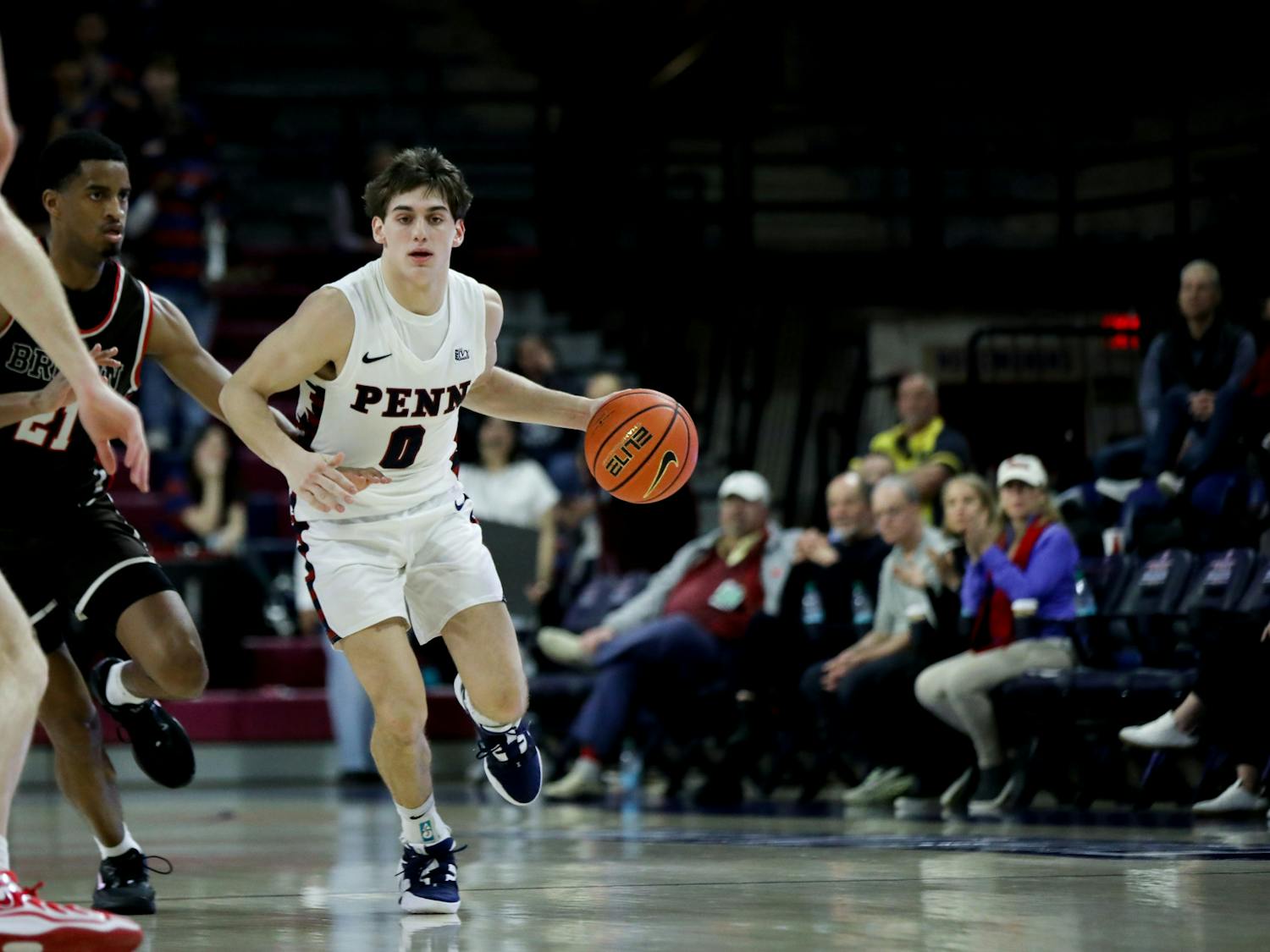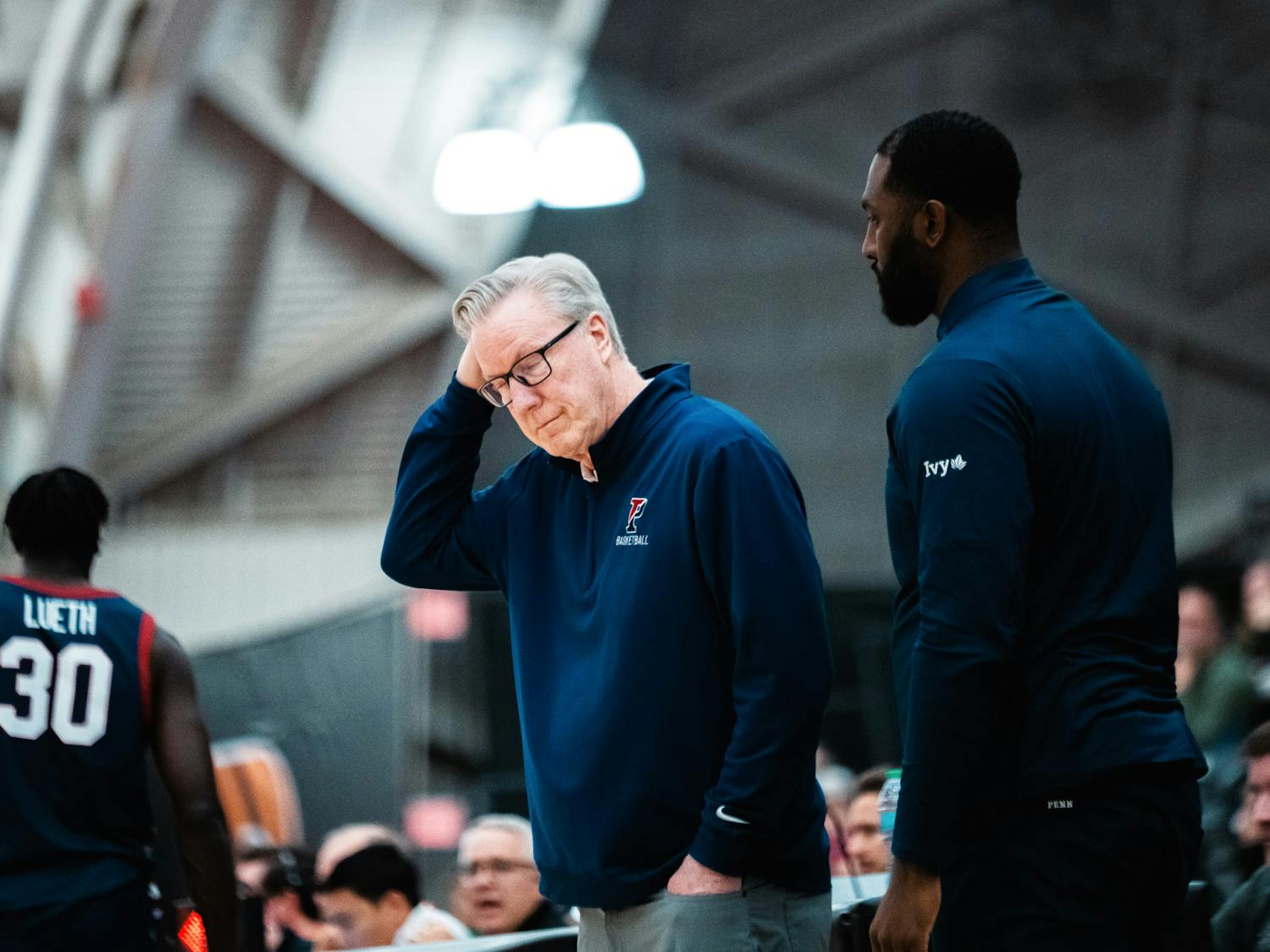In the somber Penn locker room after the Quakers lost to Texas in this year's NCAA Tournament, senior guard Eric Osmundson drew inspiration for the future from a team with which he is quite familiar.
"They could be just like Bucknell," he said of next year's Penn team.
Osmundson gets that impression from more than just having played against the Bison in the 2003-04 and 2004-05 seasons. This year, both teams were sent to Dallas for the first round of the NCAA Tournament.
The 9-seed Bison closed out their victory over Arkansas a few hours before 15-seed Penn faced off against Texas.
At the end of the day, the differences between the two Pennsylvania teams were evident, and they were not the same as those found in the Quakers' 13-point win over the Bison at the Palestra in 2004.
While both schools play the same tune about athletic achievement with high academic standards, there are some clear differences in the instruments they use -- specifically, Bucknell's use of athletic scholarships.
Bucknell was not the first Patriot League school to offer athletic scholarships when it passed the motion in 2002, but none of the other programs in the league has gained the kind of attention Bucknell did by beating Kansas in the NCAA Tournament a year ago and Arkansas this year.
Bucknell athletic director John Hardt said that his program has unquestionably benefited from being able to give scholarships, and in more ways than just its newfound basketball success.
"We have a long tradition, very similar to the Ivies, of need-based aid, whether you're an athlete or a non-athlete," Bucknell athletic director John Hardt said. "What we've found with scholarships in the mix is that we're able to recruit a higher quality student both as a basketball player and in the classroom."
Unlike the Ivy League, whose institutions officially do not offer any merit-based aid, Bucknell offers this kind of aid in "music, dance, the arts and also high academic achievement," Hardt said.
It is the athletic merit-based aid, though, that has drawn the most attention. And with Bucknell's success in basketball, that attention will likely continue to increase.
"I know that they've been close [to] or on the brink of signing some great talent, and the whole fact that they have to pay a lot of money to go to these great schools is tough for a lot of families," Bucknell guard Charles Lee said. "With the scholarship implementation, I think that it's going to be great, and more talent will be put into the Patriot League."
Bison coach Pat Flannery gets three athletic scholarships each year to give out, as does his counterpart on the women's basketball team. He sees the money as a way to make his team better, but also to allow athletes who want to go to Bucknell to be able to do so.
"Because of the financial situation, we used to get to the end of the steak dinner, and then you ask them to pay 42,000 dollars, and that was usually a deal-breaker," Flannery said. "Now you can sit there and you know that, at the end, there's a little bit of a rainbow if it's a kid you want."
Hardt agreed, noting what he called "the dumbbell effect of admissions demographics.
"You either get kids with no need at all -- fully paying kids -- or kids with almost total need," he said. "Of course, the middle-class kids are the ones who are left out of that mix."
It is a scenario with which the Ivy League is quite familiar. Flannery's team has seen the Ancient Eight up close and personal many times, including home games against Cornell and Yale this past season. A year earlier, Bucknell visited the Big Red, the Elis and Penn and faced Princeton on a neutral court in Syracuse, N.Y.
Flannery has also faced the Ivy League in off-the-court battles when recruiting players.
"For years, Penn and Princeton have taken kids that we tried to recruit, and we've never been able to beat them out on kids that we've recruited," he said. "But now we have a situation where we're able to go into those same homes and recruit with them."
With scholarships and two NCAA Tournament wins in his arsenal now, Flannery does indeed have some serious tools with which to recruit -- ones that can equal if not surpass the Ivy League's history and academic reputation.
As for what the Ancient Eight's response will be, Penn coach Fran Dunphy isn't so sure there will be one.
"I think our league has a philosophy and a stance on what they think athletics should mean to their institutions and overall as a league," Dunphy said. "I think that's what they want to do, and I respect that greatly."
While Penn has some particular assets to recruit with in the form of the Palestra and the Big 5, Dunphy acknowledged the limitations of his program.
"We are who we are," he said. "We're proud of it; we respect what our league is about. It's our philosophy, and we're going to do the very best that we can."
Exactly what the very best Penn can do remains to be seen. Clearly, though, the Quakers do not have to look far to see what is possible.








